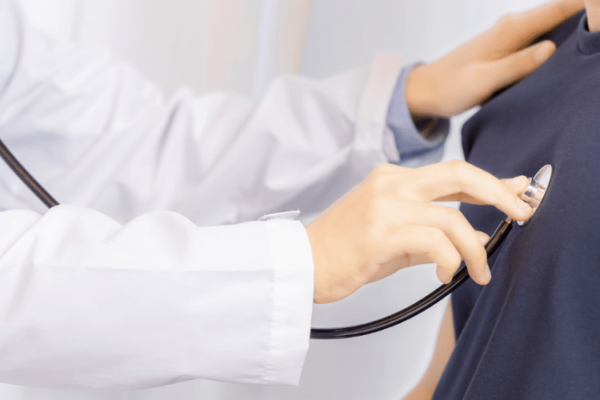
27 Dec Liver Disease
Liver Disease
By Island Hospital | Dec 27, 2018 12:04:20 PM
The liver is an organ about the size of a football that sits just under your rib cage on the right side of your abdomen. The liver is essential for digesting food and ridding your body of toxic substances.
Liver disease can be inherited (genetic) or caused by a variety of factors that damage the liver, such as viruses and alcohol use. Obesity is also associated with liver damage. Over time, damage to the liver results in scarring (cirrhosis), which can lead to liver failure, a life-threatening condition.
Symptoms
- Chronic fatigue
- Nausea
- Vomiting
- Loss of appetite
- Tendency to bruise easily
Signs
- Skin and eyes that appear yellowish (Jaundice)
- Abdominal pain and swelling
- Swelling in the legs and ankles
- Itchy skin
- Dark urine colour
- Pale stool colour/ bloody or tar-coloured stool
- Blood tests
A group of blood tests called liver function tests can be used to diagnose liver disease. Other blood tests can be done to look for specific liver problems or genetic conditions.
- Imaging tests
An ultrasound scan, CT scan, and MRI can show changes in the liver and tumours in the liver.
- Tissue analysis
Removing a tissue sample (biopsy) from your liver may help diagnose liver disease and look for signs of liver damage. A liver biopsy is most often done using a long needle inserted through the liver. It is then analysed in a laboratory.
Each liver disease will have its own specific treatment regimen.
- For example, hepatitis A requires supportive care while the body’s immune system fights and resolves the infection.
- Patients with gallstones may require surgery to remove the gallbladder.
- For patients with cirrhosis and end-stage liver disease, medications may be required to treat the complication of cirrhosis, ascites, bleeding and hepatic encephalopathy.
- Low sodium diet and water pills (diuretics) may be required to minimise water retention.
- In those patients with large amounts of ascites fluid (fluid accumulated in the abdominal cavity), the excess fluid may have to be occasionally removed with a needle and syringe (paracentesis). Using local anesthetic, a needle is inserted through the abdominal wall and the fluid is withdrawn. The ascites fluid can spontaneously become infected and paracentesis also may be used as a diagnostic test looking for infection.
- Operations or procedures may be required to treat portal hypertension and medications to minimise the risk of bleeding.
- Liver transplantation is the final option for patients whose livers have failed and in terminal stages
- Other diseases may need long-term medical care to control and minimise the consequences of their disease
- Drink alcohol in moderation
For healthy adults, that means up to one unit a day for women and up to two drinks a day for men. Heavy or high-risk drinking is defined as more than eight drinks a week for women and more than fifteen drinks a week for men.
- Avoid risky behavior
Get help if you use illicit intravenous drugs, and don’t share needles used to inject drugs. Use a condom during sex. If you choose to have tattoos or body piercings, be picky about cleanliness and safety when selecting a shop.
- Get vaccinated
If you’re at increased risk of contracting hepatitis or if you’ve already been infected with any form of the hepatitis virus, talk to your doctor about getting the hepatitis A and hepatitis B vaccines.
- Use medications wisely
Take prescription and non-prescription drugs only when needed and only in recommended doses. Don’t mix medications and alcohol. Talk to your doctor before mixing herbal supplements or prescription or non-prescription drugs.
- Avoid contact with other people’s blood and body fluids
Hepatitis viruses can be spread by accidental needle sticks or improper cleanup of blood or body fluids. The risk of contracting hepatitis B and C can be decreased by minimising the risk of exposure to another person’s bodily fluids.
- Take care with aerosol sprays
Make sure the room is ventilated, and wear a mask when spraying insecticides, fungicides, paint and other toxic chemicals. Always follow the manufacturer’s instructions.
- Protect your skin
When using insecticides and other toxic chemicals, wear gloves, long sleeves, a hat and a mask.
- Maintain a healthy weight
Obesity can cause non-alcoholic fatty liver disease.
- If left untreated – This inflammation can cause damage to the liver, making the condition worse. In this beginning stage, unlike some conditions in advanced liver disease, the symptoms and inflammation is treatable to prevent the second step of the disease.
- Fatty Liver – When a fatty liver is left untreated, it develops into Steatohepatitis, (a condition where not only fat is accumulated in the liver) but there is inflammation (hepatitis) and liver cell die (necrosis) and scarring (fibrosis) occur.
- Liver Disease – Fibrosis of the liver can then progress to cirrhosis of the liver, which is the last stage of Liver Disease.
- What’s the most likely cause of my symptoms?
- What kinds of tests do I need? Do these tests require any special preparation?
- Are my liver problems likely temporary or chronic?
- What treatments are available?
- Should I stop taking certain medications or supplements?
- Should I avoid alcohol?
- I have other health conditions. How can I best manage these conditions together?







